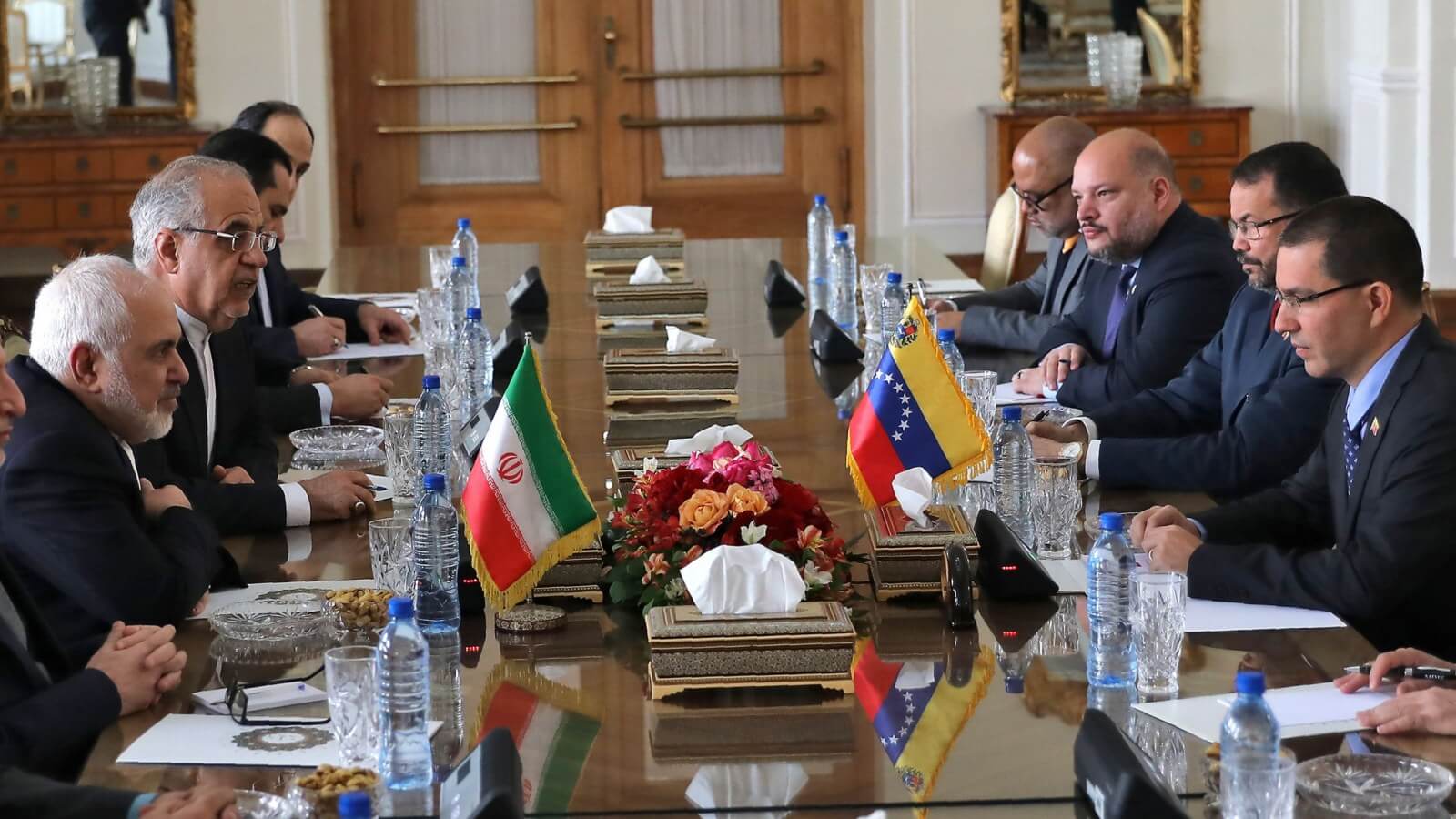Iranian Foreign Minister (FM) Javad Zarif landed in Venezuela on Wednesday to commence a tour of Latin America, amid increasingly strained relations between Washington and Tehran. Zarif is also expected to visit Cuba and Bolivia—where he will attend the inauguration of Bolivian president-elect, Luis Arce—in order to strengthen bilateral ties with the nations.
Upon his arrival, Zarif was greeted by Venezuelan FM Jorge Arreaza, who said that his counterpart’s visit only further deepened the “strategic alliance” and “brotherhood” between the two sides. Arreaza also noted that both Venezuela and Iran had “shown solidarity and courage in the face of aggression”, in an apparent reference to US sanctions on the countries.
Tehran has become an important ally for Caracas as the US tries to pressure President Nicolás Maduro into stepping down through the imposition of harsh economic, commercial, and financial sanctions against the Venezuelan government. The US deems Maduro’s 2018 re-election illegitimate and recognizes opposition leader Juan Guaidó as the country’s president. The restrictive measures have pushed Venezuela’s oil exports to their lowest levels in almost 80 years, which has left the already embattled and cash-strapped country struggling to meet the basic nutritional and medicinal needs of its population. The coronavirus crisis has only made the situation worse, and Maduro’s administration has accused the US of targeting vulnerable economies during a global pandemic and engaging in “economic terrorism” and crimes against humanity. The US has offered to ease sanctions on the nation, but only if it accepts a plan for a transitional government, which Venezuela has firmly rejected.
Iran has sought to help Venezuela during this time, sending humanitarian aid and fuel amidst plummeting oil production in the south American nation. During his visit, FM Zarif lauded the Maduro government’s resistance to US pressure, and said that the era of “Western hegemony had ended”. “Today, the United States and its allies can’t control what’s happening in the world. They’ve lost control”. Washington has also ramped up pressure on Tehran, imposing crippling sanctions most recently against the country’s entire financial sector, in a bid to push it to abandon its nuclear ambitions. Arreaza said that Caracas’ relationship with Tehran was at a “climax,” adding that the government could acquire weapons from Iran if it considers it necessary.
Meanwhile, since entering office last month, newly elected Bolivian President Luis Arce has sought to reinstate the country’s left-wing tendencies by announcing that he will look to restore strong diplomatic ties with Venezuela, Cuba, and Iran, denouncing the ‘ideological’ shift under interim President Jeanine Áñez. Accordingly, his inauguration ceremony will be attended not only by Iran FM Zarif but also by Venezuelan leader Maduro.
Cuba is expected to reaffirm its support for Iran’s develop, produce, and use nuclear energy for peaceful purposes without the imposition of sanctions. Consequently, Cuban officials are likely to once again denounce the Trump administration’s decision to withdraw from the JCPOA.
Iranian FM Begins Latin America Tour in Venezuela
Mr. Zarif is also expected to visit Cuba and Bolivia.
November 7, 2020

SOURCE: NEWSWEEK
